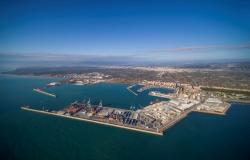On December 9, 2024, the Senegalese government took a strong decision regarding the processing of raw materials.
According to the Ministry of Industry and Trade’s interview with the Senegalese media, the minister explains the need to put in place safeguards for the prosperity of local industrial projects.
By his words, “If we want to develop a local industry, we must protect it”he intends to ban exports of raw materials.
Serigne Guèye Diop justifies this decision by the fact that “countries like China, Japan or the United States protect their markets with taxes” then he wonders “why wouldn’t Senegal do it? »
To comply with this decision, measures will be put in place. Among the provisions planned, strong emphasis is placed on the ban on the importation of second-hand clothing.
The minister observes the ridiculousness of the situation by explaining that “They export rawhide and then re-import it for processing. This logic is incomprehensible.”
Senegal’s industry contributes only 25% to the national gross domestic product. With the ban on the export of raw materials and the ban on the import of certain foodstuffs that Senegal can produce itself, this rate can increase considerably.
Cotton, for example, represents the third source of the country’s agricultural export earnings. Cotton derivatives are numerous and constitute a lucrative market.
It is therefore necessary and even essential that Senegal develops a strong and protected local industry.
Senegal






